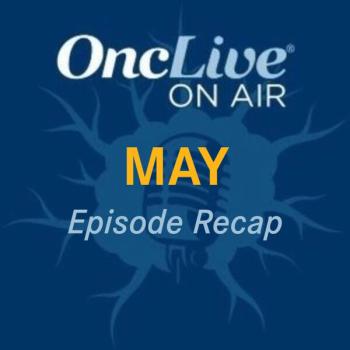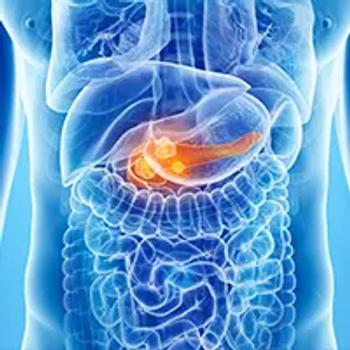
Ivonescimab monotherapy improved PFS vs pembrolizumab in the first-line treatment of PD-L1–positive NSCLC in China.

Your AI-Trained Oncology Knowledge Connection!


Ivonescimab monotherapy improved PFS vs pembrolizumab in the first-line treatment of PD-L1–positive NSCLC in China.

The FDA accepted the resubmission of the BLA for first-line zolbetuximab in CLDN18.2-positive, HER2-negative, advanced gastric or GEJ adenocarcinoma.

Treatment with asciminib led to a superior 48-week major molecular response rate vs investigator-selected TKIs in patients with Ph-positive chronic phase chronic myeloid leukemia.

Lorlatinib extended PFS and improved time to intracranial progression vs crizotinib in patients with ALK-positive non–small cell lung cancer.

Pitavastatin, an FDA-approved statin, may inhibit pathways that contribute to IL-33 production, which has been shown to contribute to cancer development.

Daniel M. Halperin, MD, discusses the FDA approval of lutetium Lu 177 dotatate for pediatric patients with SSTR-positive GEP-NETs.

Jeremy Allred, MD, details current and emerging treatments for patients with myelodysplastic syndrome, highlighting recent key data updates.

In case you missed any, below is a recap of every OncLive On Air episode that aired in May 2024.

AGuIX has been granted FDA fast track designation in malignant gliomas and glioblastoma.

Frontline rivoceranib plus camrelizumab continued to show a significant improvement in OS vs sorafenib in advanced unresectable hepatocellular carcinoma.

The FDA approved liso-cel for the treatment of adult patients with relapsed/refractory mantle cell lymphoma after at least 2 prior lines of therapy, including a BTK inhibitor.

Daniel M. Geynisman, MD, of Fox Chase Cancer Center, has been appointed editor-in-chief for Journal of the National Comprehensive Cancer Network.

Adding atezolizumab to neoadjuvant pertuzumab, trastuzumab, and chemotherapy produced improved EFS and DFS rates in HER2-positive early breast cancer.

PSMA response was associated with improved metastasis-free survival in oligometastatic castration-sensitive prostate cancer.

A medical team at AHN tested two courses of neoadjuvant immunotherapy for advanced gastroesophageal cancer — a relatively rare disease.

The FDA has granted accelerated approval to selpercatinib for pediatric patients with select RET-altered metastatic thyroid cancers or solid tumors.

The FDA granted fast track designation AFM24 plus atezolizumab for advanced EGFR wild-type non–small cell lung cancer.

The FDA granted priority review to an sBLA seeking the approval of pembrolizumab plus chemotherapy as frontline therapy in malignant pleural mesothelioma.

The European Commission approved nivolumab plus cisplatin and gemcitabine for first-line treatment in unresectable or metastatic urothelial carcinoma.

The FDA granted priority review to inavolisib plus palbociclib/fulvestrant for HR-positive, HER2-negative, advanced breast cancer with PIK3CA mutations.

Zanidatamab has received priority review from the FDA for the treatment of patients with HER2-positive metastatic biliary tract cancer.

Treatment with nivolumab plus cabozantinib yielded responses in patients with non-clear cell renal cell carcinoma.

CT041 was safe and showcased early signals of antitumor activity in heavily pretreated patients with metastatic pancreatic cancer.

Sanjal Desai, MD, discusses the feasibility of venetoclax rechallenge following progression on BTK inhibitors in chronic lymphocytic leukemia.

Sarah ES Leary, MD, MS, details the significance of the FDA-approval of tovorafenib for patients with relapsed or refractory BRAF-positive pediatric low-grade glioma.

James Knight, MD, discusses a case study of a patient with brain metastases from prostate cancer and the importance of multidisciplinary, comprehensive care.

Sameer Patel, MD, FACS, of Fox Chase Cancer Center, was recently named Vice President of the Robert H. Ivy Society of Plastic Surgeons.

Perioperative pembrolizumab plus chemotherapy improved survival vs preoperative chemotherapy in high-risk, early-stage, triple-negative breast cancer.

Dato-DXd elicited a clinically meaningful but not statistically significant improvement in overall survival in pretreated, advanced non–small cell lung cancer.

The FDA has received a new drug application for the use of TLX007-CDx in the preparation of PSMA PET imaging of prostate cancer.